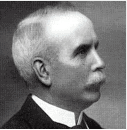Ah, SQL Pass is imminent; and all over the world, people are preparing their presentations. There is great satisfaction to be had through facing a specialist audience. For the rest of the year, even devoted friends and family tire quickly of hearing your breathless account of the inner workings of execution plans and distribution statistics; but here the audience hang on your every word, if you’ve pitched it right. Mind you, getting it wrong carries with it a great deal of pain. As you hold forth strongly on what you imagine to be a really hot subject, such as virtualization, suddenly hundreds of faces are illuminated in front of you as laptops are opened by bored members of the audience, who start checking their mail or updating their Facebook pages. You struggle on, and they start Twittering, damn them. I remember more than one occasion where the presenter, stung by the twittered criticisms, twittered back defiantly. Admirable spirit, I reckon.
There are, of course, occasions when the audience has some justification for feeling a bit cheated. One famous SQL expert accidentally left his mobile phone on and had a family member ring him half way through. In his panic, he answered it without backing away from the microphone, saying, “Not now, dear, I’m doing a presentation at SQLPass”. This is a line I have cherished ever since. A tense conversation ensued, and the audience was agog to hear both sides. Eventually, the caller was soothed enough to hang up and we carried on with the presentation. However, five minutes later, the phone rang again and was again answered! .
Actually, the presentation was made more memorable by the intermission, and was subsequently listened to intently by the audience. I must admit I thought it was a gag and, afterwards, I put it to the presenter that what we’d witnessed was a trick to engage the audience and induce them to turn off their laptops and listen. Nobody forgets to switch their phone off twice surely? Truth, he assured me, was stranger than fiction; it was a brand new phone, bought that morning as a replacement for a broken one. He hadn’t had time to learn which button did what..
All sorts of things can go wrong in a presentation; technology grenades, power gets cut, fire sprinklers go off, members of the audience get taken ill, police raid (wrong address). The seasoned presenter will be prepared for almost anything, with strategies for coping with any predictable turn of events..
When thinking of presentations that can go wrong, I’m always reminded of the time that the great poet and author, Hugh Iztu, got invited to China for a university symposium that included a celebration of his creative work. Naturally, I’ve disguised or changed the details, and it isn’t his real name..
Hugh is a celebrated writer, one of the last of the ‘beat’ poets. He’d led an innocent life, gradually descending from those heady, reckless days of post-war rebellion into a cosseted life as a lecturer in a leafy Colorado university, lauded by intense-looking students wearing berets and dark glasses. He was able to savor those wonderful years when he hung out with Dylan and Joan Baez, and went carousing with Elvis Presley. His first books were a magical invocation of an angst-fuelled adolescence, a discovery of both rock and roll and sex, and the giddy cultural revolution of sixties San Francisco. Now a plump and dignified academic, with a string of acclaimed books that never really made it to the mainstream, he was surprised to receive an invitation to speak in China about his life and work, as part of a symposium about American art and culture. It was a vast venue, and the fees they wanted to pay seemed astronomical.
When the plane landed, a large number of people met him. Some of them could speak perfect English, and knew his writings far better than he did. All of them were keen to shake his hand and express how privileged they were to meet him. For the first time in his life, he felt he was a real celebrity. He was given a tour of the university and was amazed to find how rigorously the cultural development of post-war western culture, and its many twists and turns, had been studied, documented and understood.
After a day of meetings with editors, film directors, intellectuals, and well-known Chinese artists and authors, he left quietly and was taken to his luxury hotel. The following morning, all was quiet. His hosts assumed that he wished to meditate before the headline talk he would give at the city’s stadium in the afternoon.
As is usual in modern international hotels, the blues quickly descend. Left alone, Hugh was suddenly struck by the immensity of the task before him; to engage that vast audience, and to transmit to them the emotional intensity of the beat era, the camaraderie with the Nashville set, and his subsequent elevation into a literary icon of the Sixties West-coast.
At that point he spied the drinks cabinet and remembered his host’s cheery invitation to help himself. He did, and each glass increased his confidence. When the car arrived to take him to the stadium, he was surprised by the difficulty he had in negotiating the stairs. Inside his brain, the lights were slowly going out. The only bright glow was his alcohol-fuelled confidence.
At the packed venue, a huge screen flashed photos of him, young and fit, writing lyrics with Dylan, or speaking with sixties gurus. Even younger versions of himself appeared with Mae Boren, Col Parker and Elvis, or doing public readings in a baggy jersey with Ginsburg and Ferlinghetti.
As he shook hands and exchanged greetings with a queue of dignitaries, as he was guided towards the stage, the whiskey finally began to anesthetize the cerebral cortex, and Hugh was dimly aware that he had perhaps been unwise; he had almost lost the capacity to string two meaningful words together. An intellectual retrospective, a broad account of a lifetime’s poetic work, a glimpse of the artist at work; these were all now out of the question. With his last lucid moments, he started to grasp about in his memory, like a drowning man reaching vainly for a lifebelt, and then, finally, grasped something solid from the recesses of his memory.
The audience saw Hugh’s small figure appear on the distant stage, suddenly magnified by the huge screens behind him and leaned forward expectantly to hear his words. Here, they thought, was something they’d be able to tell their grandchildren in years to come. Hugh went up to the microphone, swayed uncertainly and blinked at the vast sea of heads in front of him. From some entrenched resource, deep in the cerebellum, Hugh wrenched his Elvis impression, one that had entertained generations of students.
“Well, since my baby left me.
I found a new place to dwell
It’s down at the end of lonely street
At heartbreak hotel…”
It is a useful fact about the human brain that, long after the capacity for logical thought is neutralized by alcohol, one can still do impressions. So engrossed had he become that he had no thought but to make it good. As he did it, the energy and excitement of his time hanging out with the Memphis beats and Rock artists came flooding back. The audience was stunned. They gaped at the huge figure on the screens as he pitched into the song. They were expecting a rather boring lecture full of worthy thoughts about literature and poetry. Instead, one star of western culture had somehow morphed into another, and here was a brilliant poet who had transcended language, with a piece of theatre that expressed, in an immediate way, that which mere language could not; the broad sweep of post-war western culture that had been denied to them for so long.
According to the account I heard, no visiting celebrity had ever received applause like Hugh received when the adrenaline finally ran out and he slumped semi-conscious into his seat. Tears of emotion ran down the cheeks of even the coldest intellectuals. It had tapped straight into something deep in the psyche of the newly-liberated intellectual life of China.
The moral? With public speaking, whatever the emergency, there is always a way of pulling splendid victory from the jaws of defeat, but you may, like Hugh, need to dig deep to find it.





Load comments